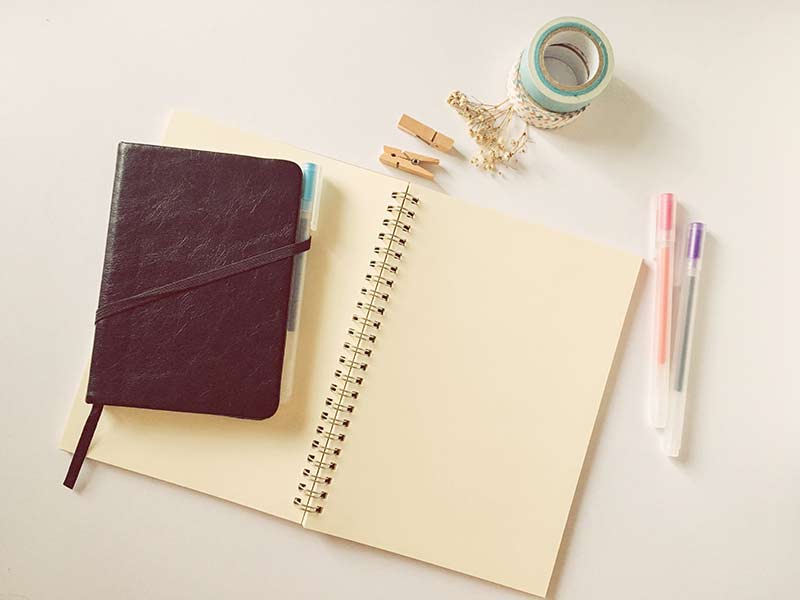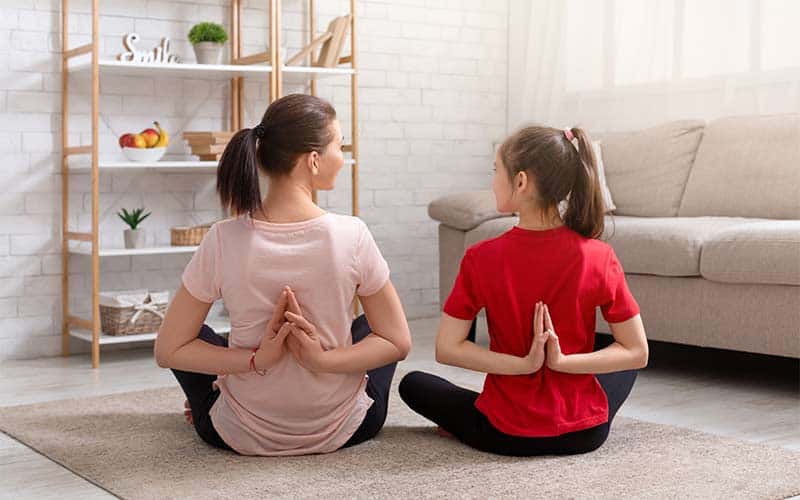Just like adults, teenagers often experience stress and anxiety, and many of them haven’t learned how to understand and cope with these feelings yet (nor have most adults, for that matter.) Learning mindfulness for teens can help you cope with life, learn how to get through all sorts of challenges, and gain a better understanding of your mind and how it works for (and sometimes) against you. Here’s what you need to know, including some mindfulness activities for teens, some fun mindfulness exercises, and everything else you need to be a mindful teen.
What is Mindfulness for Teenagers?
The definition of mindfulness can vary quite a bit depending on who you ask. There’s the dictionary definition, and then there’s how people use the phrase and interpret it. It can have a kind of hippie-dippie connotation to it and it can mean spiritual things to some people, however for other people it just means taking a moment to breathe deeply and collect your thoughts.
Here’s a list of other ways to describe the concept of mindfulness, borrowed and adapted from MindfulnessForTeens.com:
- Being present in the moment
- An awareness of yourself and your mind
- Having an awakening of perspective
- Concentration plus attention equals mindfulness
- Seeing things with clarity
- Compassionate awareness
- Openheartedness for yourself and those around you
- Loving presence in the moment
4 Benefits of Mindfulness for Students

Mindfulness fits into all areas of life, but it can be particularly beneficial for students, especially when you feel overwhelmed and like you’re being pushed too hard. Mindfulness and the teenage brain is an intriguing topic, since there’s so much going on in the mind of a teenager, so many changes, so many confusing things, and mindfulness can help regulate it.
Stress and anxiety can build up a lot for a busy student, or a student who’s having a difficult time with a particular project, test, or class.
Harvard has discussed a study that suggests that teaching mindfulness to teens can help reduce a lot of the negatives that many adolescents associate with their educations. Whether it’s feeling anxious about having your name called in class and stressing about that all night, or feeling like screaming because you don’t have a minute to just relax between classes, after-school things, clubs, sports, etc.
This study shows that students who (self-reportedly) practice mindfulness in their lives tended to perform better on their tests. In a study, two groups of teenagers were given different things to do, with one group having an emphasis on mindfulness. The results reported by the mindfulness group showed that they felt less stressed out and that they had an easier time practicing self-control in their lives.
These results are fantastic, and they’re in line with what’s been known about mindfulness for a long, long time. There are plenty of different ways to be mindful, so find one that works for you, and track your results and keep track of how you’re feeling. You might be surprised.
4. Reduces Stress and Anxiety
Stress and anxiety can go hand in hand, as can anxiety and depression. Using mindfulness to help curb anxious feelings is a very useful tool to learn. You may not fully eliminate it, but helping to reduce is all it takes sometimes.
Teenage years are stressful. It’s true that you don’t have a mortgage and a career and utility bills to stress about, but you have a lot going on in your life nonetheless, and you haven’t had as much time to learn how to deal with these things. Everything feels new, and massive, and tough to overcome. Mindfulness for teens helps you put it into perspective.
See also: Signs of depression in teens.
3. Improving Focus and Attention
When your mind feels scattered and all over the place, filled with worries and anxieties, it can be so hard to actually sit down and focus your attention on something. This can lead to procrastination, which further puts more pressure and stress on a teenager, and this vicious cycle can just keep repeating and getting worse.
Using mindfulness exercises can help break this cycle, bring you back down to earth, and help you finish the things that need to get done, followed by a well-earned sigh of relief.
2. Enhanced Memory
Mindfulness can also help improve your memory, in a similar way that it helps with focus and attention. When there’s less of a mess going on in your brain, it’s easier to remember things that are more important. Stop focusing on things that won’t help you with what you need to do, and start being mindful because the benefits of mindfulness for teens are staggering.
1. Emotional and Social Intelligence
Teenagers don’t always learn about how to regulate their emotions, and social intelligence is sometimes learned a bit later in life, if at all, for some. There are some lucky people who pick up on this stuff very early and it seems to come intuitively to them, but many teens struggle with emotional intelligence and social intelligence, and mindfulness is a valuable tool to understand as early as possible.
It’s never too late to start thinking about, and understanding, mindfulness for teenagers.
Mindfulness Activities for Teens
Here are some mindfulness activities teens have had a lot of success with. These mindfulness activities for teens are things that you can do in your day-to-day life, ranging from bigger changes to just small exercises that will help keep your mind on track as you train yourself for this to become automatic.
Dance classes for teenagers can be a good activity to help you also practice mindfulness by gaining a new connection with your body.
Frankly, you can use mindfulness techniques no matter what you’re doing, but here are some specific activities that work to engage your mindful energy, especially when you’re being purposeful and diligent in doing so.
Taking a Walk in Nature
Going for a walk through nature, whether you have good trails near you, or just walking around the perimeter of a park, is a great way to center your mind and practice mindfulness. If you use a mobility device of some sort, that works just fine too, you don’t need to be walking with your legs to experience the benefits of this.
Benefits of a mindful walk: This is a great opportunity to clear your mind and set the tone for a peaceful day. It can help reduce stress, anxiety, and worries for a mindful teen.
How to be mindful while walking:
- Leave your headphones at home, just listen to the sounds of nature and try to concentrate on the simple things that are all around you.
- Bring a snack and eat it very mindfully. Take a bite, think about how it tastes, notice the texture, just really immerse yourself in it.
- Stop for a break if you find a nice area. Feel the grass touching your legs or the wood on the bench. Look at the leaves around you, breathe in the air.
- Appreciate the moment, think about what’s happening around you, the wind, the sounds, the air.
Cooking Mindfully
Cooking a meal can be a great way to practice mindfulness. There are so many textures, smells, and tastes to experience and feel that it really awakens your senses. It takes some degree of focus, depending on what you’re cooking, especially if you’re using a knife to prepare the ingredients, but cooking also offers many opportunities for mindfulness.
Benefits of mindful cooking: You’re present in the moment with a clear task to complete, something that isn’t overwhelming, and you get to reap the rewards after with a tasty meal.
How to cook mindfully:
- Diligently prepare your ingredients, lay them out in your cooking area so everything is in an easy-to-access place for when you need it. Think about how the ingredients smell, how they feel, and how they taste if you have a little sample here and there.
- Notice the ingredients change as you cook them, how they change in color, appearance, shape, and ultimately how they taste.
- Pick up on the sounds the food makes as it cooks, the sounds your spoon makes as it hits the side of a mixing bowl, the sound of chopping, and so on.
- Reflect on how this meal used to be an assortment of individual ingredients, and think about what they’ve come together to create.
Teenage Journals for Mindfulness

Journaling is an incredible way to take a mindful approach to record and analyzing your feelings. It’s easy for our minds to become full of bias, and to look upon the past, even how we’ve felt in the very recent past, through a different set of lenses than we had on in the moment. Journaling your feelings is like taking a snapshot of how you felt in a moment so that you can look back at it later as it was, not how you remember it to have been.
Benefits of mindfulness journals for teens: Keeping a journal is a fantastic way to organize your thoughts so that you can reflect on them at a later date. Even if you never go back to read your journal again, just the act of writing things down and thinking about them one time is a more diligent form of self-reflection than most people will ever undertake. You don’t need anything fancy and you don’t need whatever the experts refer to as the best mindfulness journal, you just need a piece of paper and something to write with, or a computer to type up your journal entries, or even a phone with a notes app.
Beginning Your Mindfulness for Teens Journey
Mindfulness for teens is a practice that you can learn earlier on in life, that will stay with you for the rest of your days. You’ll be able to analyze your life more successfully while gaining greater insights into how your mind works, and why you react to things in certain ways.
Mindfulness activities for teenagers are a great way to tap into this practice, giving you a gateway to mindfulness that you can draw upon. There are countless advantages to mindfulness for teens, and the best thing that you can do is start – even if you’re not perfect from the get-go, do your best and you’ll notice a difference!
